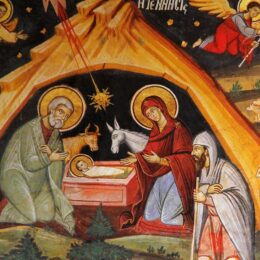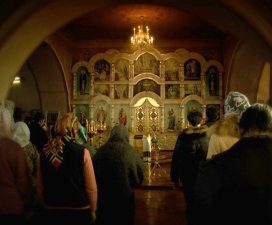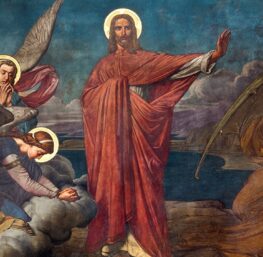The Time Online | Gerard Baker | October 17, 2007
Anti-Americanism is on the wane at last. All over the world, Americans are being feted once again as farsighted, liberating heroes.
Al Gore has won a Nobel Peace Prize, an Oscar and an Emmy, the triple crown of recognition from the self-adoring keepers of bien-pensant, elite liberal, global orthodoxy. Michael Moore is treated like a prophet in Cannes and Venice, as he peddles his tales of an America that poisons its poor, sends its blacks off to war and shoots itself. Whenever a loquacious Dixie Chick or a contumacious Sean Penn utters some excoriating remark about the depravity of his or her own country, audiences around the world nod their heads in sympathetic agreement. Bill Clinton, of course, is a god. Though protocol dictates that he may not say things that are too unkind about the country he once led, a nod and a wink will suffice.
It has always amused me that the same people who denounce America as a seething cesspit of blind obscurantist bigotry can’t see the irony that America itself produces its own best critics. When there’s a scab to be picked on the American body politic, no one does it with more loving attention, more rigorous focus on the detail, than Americans themselves.
It has always been this way. The fiercest and most effective opponents of US foreign policy in the 1960s were not the students in Paris or the Politburo in North Vietnam. They were Jane Fonda, Bobby Kennedy and Marvin Gaye.
Today I can only laugh when I see the popular portrayal of George Bush’s America in much of the international media. Supposedly serious commentators will say, without evident irony, that free speech is under attack, that Bush’s wiretapping, Guantanamo-building, tourist-fingerprinting regime is terrifying Americans into quiet, desperate acquiescence in the country’s proliferating crimes.
. . . more




Christopher writes: “Here you yet again reveal a strange ignorance of Christianity for someone who allegedly is honest about his participation at a Christian blog for several years now. Basic Christian dogma and teaching 101: All Christians, all Orthodox, are pastors (i.e. priests) by virtue of their baptism.”
But my point is that there is no pastoral relationship. Relationship is the operative word here. I have no doubt that people here care about me, and that they have various insights to share. But there is no relationship of pastor or priest to parishioner.
When you use language such as ” you yet again reveal a strange ignorance . . . ” it reminds me of the phrase “anything you say can and will be used against you . . .” I say things that are fairly harmless, and these are then used as “evidence” of some ignorance or offense. You certainly have a right to your own opinion, but I don’t find comments such as that very helpful, nor do they make for a congenial discussion. My hope is that going forward under a new administrator this kind of comment can be less frequent. Play the ball, not the man, as they say in soccer.
Christopher: “The evidence of your words, your explicit relationship to Christianity (you explicit rejection of it and your stated reasons why) reveals your hardness of heart, as if your outright rejection of humanity (Terri’s, unborn children, etc.) do not also.”
My outright rejection of humanity also includes extensive work with the local migrant community, tutoring in English, taking in children whose parents lost their apartment, hosting international students, helping people at work to advance their careers, and so on. This is a basic problem of the Internet in venues such as this. You don’t see Jim Holman; you see a slice of Jim Holman, a caricature of Jim Holman. I don’t see you; I see a caricature of you. This is why I try to be modest in my evaluations of others here, because I know that I’m not seeing the whole person, only a small part of the person.
Holman wrote: “It’s also interesting to me that people here see the discussions in terms of damage and danger, loss and victory, weapons and combat . . .”
Christopher replied: “That’s interesting! REALLY?? Again, your profound ignorance of Christianity reveals exactly why you are a Troll. Your not the least interested in Christianity. Someone who has been posting on a Christian blog for literally years finds very basic Christian language “interesting”, as if he is encountering it for the first time?? Do we need any more evidence than that that your participation here is fundamentally dishonest?”
Again, anything I say can and will be used against me. I find it interesting that some people see these discussions in terms of combat and damage because not all do. Fr. Hans does not. Tom C does not. Dean and Dean S. do not as far as I know. I believe our new moderator does not. So even within the ranks of the Orthodox people have different kinds of experiences here.
Christopher: “This blog needs some structure, some basic standards. Trolls are a good place to start IMO…”
As I’ve said many times, I exist here only at the pleasure of the blog owner or moderator. At any time my participation here can be limited or eliminated by the moderator, any or all of my posts deleted. In around four or five years that has never happened. Under new management it may or may not. Whatever the decision, I accept it. That is a difference between you and me. I do not dictate to the owner or moderator how the blog should be run. It’s his blog, not mine.
But my point is that there is no pastoral relationship.
Your point is exactly wrong – there is no relationship at all, not even the sanitized and limited communications on the internet, that is not pastoral. Fr. Hopko puts it this way: all of us, by virtue of our baptism, are the pastor to everyone (every single person) we meet. Even the atheists who throw rocks at us (going from memory but that’s real close if not exactly what he said).
Now, you point might have merit if this is not a Christian blog – something not having something to do with Orthodoxy (i.e. Christianity). This is where I fault Fr. Jacobse’ understanding of communication – it is essentially inward looking, and frankly a bit abstract and impersonal. The web is certainly limited in this regard, but your still a human (even if you are a post-human as C.S.Lewis would say).
My outright rejection of humanity also includes extensive work with the local migrant community, tutoring in English, taking in children whose parents lost their apartment, hosting international students, helping people at work to advance their careers, and so on.
Yes yes, but as the Lord says, even those rotten to the core love those who love them. Are you able to see the humanity of someone you can not materially able to “see”? Not the unborn, not Terri. You limit humanity to material categories – and man is more than mere “brains in bodies”, and in quite moments, even your harden heart tells you so Jim.
I find it interesting that some people see these discussions in terms of combat and damage because not all do. Fr. Hans does not.
He most certainly does – he is a Christian, remember. He understands our spiritual combat all too well. I think you are partly correct however, he does not seem to acknowledge and take into account the personal side, rather abstracting the “engagement of ideas” in a too positivistic sense I think. Still, he certainly understand on most other levels basic Christian vocation obviously.
The central question is: What is a “Christian” blog? If it is claiming to have something to do with Christianity, and here Mr. Banescu’s site is no different than Fr. Jacobse’ site, does it makes sense that it accepts essentially “secular” terms of debate/discussion? The “liberal round table”, the “town hall meeting”, these are liberal Enlightenment ideas and metaphors about what it means to discuss differences in a civil and substantial way. There is allot to be commended in them, but a Christian can not accept everything about them. The atheist philosopher Stanley Fish argued along these lines with the Roman Catholic editor Richard Neuhaus back in 1996 in First Things. I think Fish had the better part of the argument, though Mr. Nihau’s rightly corrected some of the more extreme implications (mainly by remembering the Image in everyone). Still, Fish is right about the liberal mind – it reduces everything (including other beliefs) into it’s own terms. When it defines the place of debate, and what debate is, then it of course favors it’s own relativistic thinking.
This is why you Jim, and explicit anti-Christian, metaphysical materialist, and moral relativist, think that “debate” and “discussion” really are only legitimate in your own terms.
Unfortunately, Fr. Jacobse held a view of this blog that was in fact no different than the “liberal round table”. He has stated that is how the blog grew (though he seems to be talking about the home page as well) because it is a free-for-all. I don’t think so. I think this blog would be have many more participants if some basic form and limits were given it. People would then contribute knowing that their contribution was not going to be fundamentally used and abused by the Trolls (and in an attempt to clarify, 150 posts refuting silly and even obscene interpretations of it). The world does not really need another “liberal round table”, and even if it did, it is inaccurate attach “Orthodoxy” or any other term with Christian meaning to it. Christians don’t, can not, given their beliefs about man and God, simply treat another person as a philosophical sharpening stone.
Christopher, go soak your head. You yammer endlessly about Christian anthropology and you are apparently unwilling to embrace it in real life in even the most mundane of circumstances. You are hostile and have admitted to a tendency towards desiring to commit physical violence towards others. You’re rude and have implicitly threatened Fr. Hans (isn’t there something in Christianity 101 about humility?). You brag about your vices as if they were virtues (all in the interest of “furthering the ‘faith'” of course).
By the way, how’s that fingernail doing? You know … the one you declare more valuable than 50 human lives … do you have it in a jar somewhere?
You do have sensible things to say sometimes. On occasions you even sound reasonable and intelligent. I wish you’d drop the silly threats and bullying.
Mr. Banescu, Michael, and all:
If I may make a suggestion, download and read “Why we can’t all just get along” by Stanley Fish, “Why we can get along” by Richard John Neuhaus, and “Stanley Fish replies to Richard John Neuhaus” here:
http://www.firstthings.com/issue.php?id_rubrique=123
Very powerful arguments about the liberal round table, and how Christian’s should engage it. Mr. Fish (a non-Christian, though I think he might be Jewish, not an atheist) seems very tuned to the same thing C.S. Lewis is in his “The Abolition of Man”, but Mr. Neuhaus reminds us of the Image that can not be totally destroyed in each of us. Like I said above, I think Mr. Fish has it more right, at least when it comes to actual engagement in public discourse and forums such as blogs. Mr. Neuhaus reminds us that people are not their philosophy, but Mr. Fish notes that in the engagement itself, they (more often than not) practically are, at least in my idiosyncratic reading.
Check it out!
Chris, Michael, and all
I would like to recommend another article (this one is really good I think):
http://www.thenewatlantis.com/archive/9/hart.htm
This is by David Hart, an Orthodox lay theologian. This article deals directly with theological anthropology, and speaks to what we have been discussing here around the issues of “Trolls”, what it means to discuss the Gospel in a “round table environment”, materialism, etc.
A quote:
Obviously none of this would interest or impress the doctrinaire materialist. The vision of the human that John Paul articulates and the vision of the “transhuman” to which the still nascent technology of genetic manipulation has given rise are divided not by a difference in practical or ethical philosophy, but by an irreconcilable hostility between two religions, two metaphysics, two worlds—at the last, two gods. And nothing less than the moral nature of society is at stake. If, as I have said, the metaphysics of transhumanism is inevitably implied within such things as embryonic stem cell research and human cloning, then to embark upon them is already to invoke and invite the advent of a god who will, I think, be a god of boundless horror, one with a limitless appetite for sacrifice. And it is by their gods that human beings are shaped and known. In some very real sense, “man” is always only the shadow of the god upon whom he calls: for in the manner by which we summon and propitiate that god, and in that ultimate value that he represents for us, who and what we are is determined.
#55
Hart is smart, wise, and writes with real flair. He is a treasure who is, sadly, not well enough known even among his fellow Orthodox.
Here is another by Mr. Hart: Christ and Nothing http://orthodoxytoday.org/articles2/HartChrist.php
“If we turn from Christ today, we turn only towards the god of absolute will, and embrace him under either his most monstrous or his most vapid aspect”
The question then becomes, “What Christ” is it the vapid Christ of secular legalism, or the Living Incarnate Word.
I think “Christ and Nothing” is a great article, though pretty tough reading even for a Christian with a background in the subject matter.
Tom C is right about Hart. Like George Will he has an extensive vocabulary that has me turning to the dictionary at least once a page…
Christopher, you overstate the case, a dictionary is only needed once every other page.
That being said, the following struck me as illustrative of the mentality of several Christian opponents who have posted here:
It is a hard work to avoid allowing such a mentality to become mine and be sucked into the mind numbing, soul destroying nothingness of modernity of which our poltics is but a noisy echo.